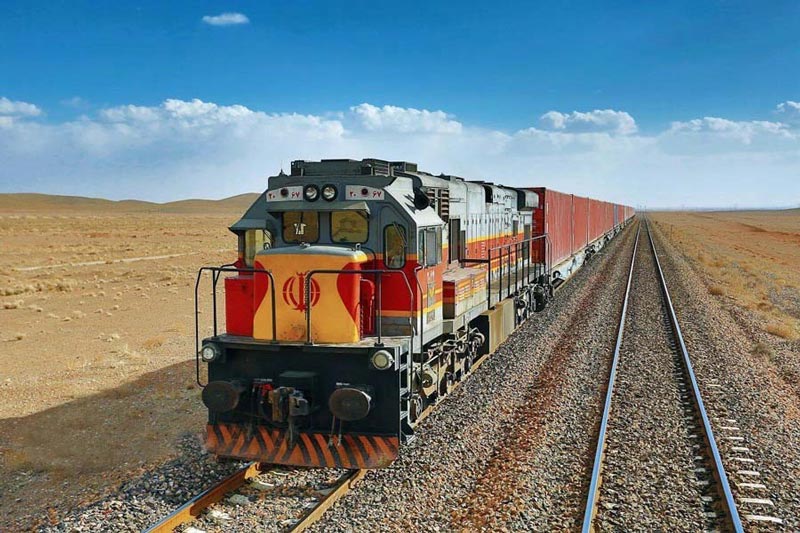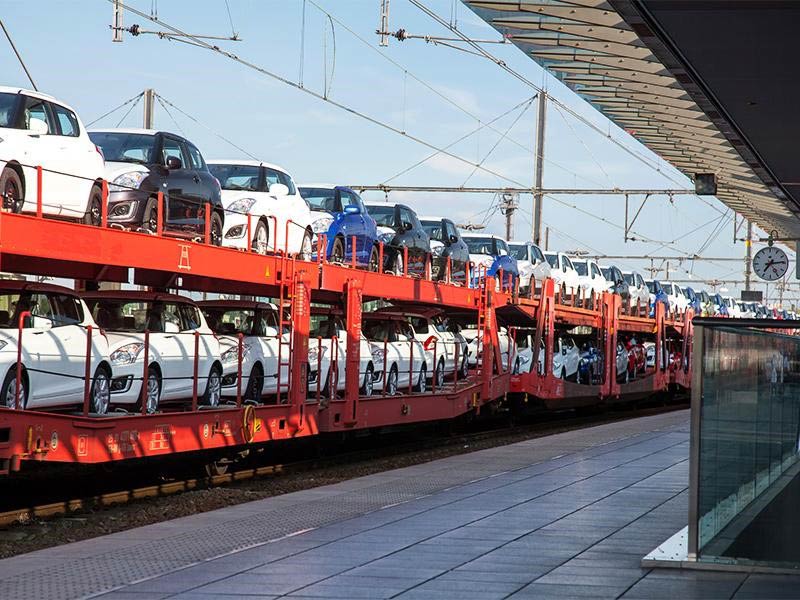The train is one of the best means of intercity transportation, by which you can also take your car to your destination. In this article, we discuss the rules for transporting goods by train.
disclaimer: The editors of Kajaro did not participate in the preparation of this advertising content and are not responsible for its accuracy
Have you ever wondered how you can travel with cheap train tickets while transporting your luggage and vehicle? Many travelers may be faced with the question of how to optimize transportation costs and get the most out of train travel.
In this article, we will review the rules and regulations of transporting goods and vehicles by train and provide important tips on how to buy cheap train tickets and use services related to transporting goods and cars. This information can help you travel with more knowledge and benefit from the benefits of rail transportation. Read on to learn the rules and essential tips.
Rules and restrictions of cargo transportation by train
Shipping by train can be a cost-effective and convenient option, especially if you familiarize yourself with the rules and regulations of shipping. This knowledge will help you to avoid possible problems during the trip and take full advantage of the cheap train ticket. In this section, the key points about the rules and restrictions of transporting goods by train are reviewed:
- Allowed load weight and dimensions: Each railway company has specific rules for maximum load weight and dimensions.
- Usually, there is a need to pay additional fees for larger or heavier loads.
- Cargo Type: Certain items, such as hazardous or flammable materials, may be subject to special restrictions and require a special permit.
- Packing: The cargo must be properly packed to prevent damage during the journey. Improper packaging may result in non-acceptance of the shipment.
Maximum weight allowed to carry cargo by train
Each railway has specific conditions for the permitted weight of cargo. This weight may depend on the type of train and service you choose. It is important to note that carrying cargo with excessive weight may incur additional costs or even prevent it from being loaded.
- Maximum standard weight: Usually, for passenger cargo, the allowed weight is usually around 30 to 50 kg, but for commercial cargo, this amount may be higher.
- Additional charges: If your load exceeds the weight limit, you may be required to pay additional charges for carrying the load.
Type and packaging of goods allowed to be transported by train
Paying attention to the type and method of packing cargo can have a great impact on the success of transporting cargo by train. Improperly packed or non-approved shipments may be rejected or damaged.
- Allowed loads: It includes different types of goods and personal furniture that have proper and safe packaging.
- Proper packing: The packing should be such that the load remains stable and secure during the journey. Poor packaging can lead to cargo damage or problems in the loading process.
Conditions for transporting vehicles by train
Transporting a vehicle by train is another special service that can be useful for long trips or transporting cars to other areas. To use this service, you must familiarize yourself with its specific conditions.
- Type of vehicle: usually includes passenger cars, motorcycles and sometimes heavier vehicles.
- Booking process: There is a need for prior booking and coordination with the railway company to transport the vehicle. The cost and conditions vary depending on the type of vehicle and the route.
Costs associated with transporting a vehicle by train
The cost of transporting a vehicle by train can depend on many factors, including the type of vehicle, distance and additional services.

- Basic costs: includes basic costs for transporting a vehicle, which usually depends on the type and weight of the vehicle.
- Additional charges: There may be additional charges for special services, packaging or insurance.
The process and steps of booking car transportation by train
To transport a car by train, there is a need to follow certain procedures and steps which can include online booking, payment of fees and coordination with the railway company.
Online booking: The first step to transport a car by train is to book the relevant services online. Many railway companies provide online booking facility which allows you to check the various details, choose the right option and pay the fares.
Payment of costs: After booking, you must pay the costs of transporting the car. These costs usually vary based on the type of car, distance and additional services. Paying attention to the details of the expenses and receiving the payment receipt is one of the important steps.
Coordination with the railway company: After making the reservation and payment, it is necessary to make the final arrangements with the railway company. This includes providing the required documents, determining the time of delivery and receiving the car, as well as checking the special conditions related to car transportation.
conclusion
Finally, knowing the rules and regulations of transporting goods and vehicles by train can help you have a comfortable and hassle-free train travel experience. By complying with the maximum allowed weight, packing the luggage properly, and knowing the vehicle transport conditions, you can enjoy your trip with minimal problems. Also, in order to take advantage of cheap train tickets and services related to cargo and car transportation, the right and affordable choice is particularly important.
In order to better manage costs and use quality services, we suggest using the Flytoday application. Flytoday allows you to plan your trips safely and cost-effectively by providing cheap train tickets, cargo and vehicle services. By using the services of this group, you can be sure that all aspects of your trip will be properly managed and you will have a comfortable and enjoyable experience.
For more information and to book cheap train tickets at the best price, visit the Flytoday website and take advantage of its professional services.
RCO NEWS

















